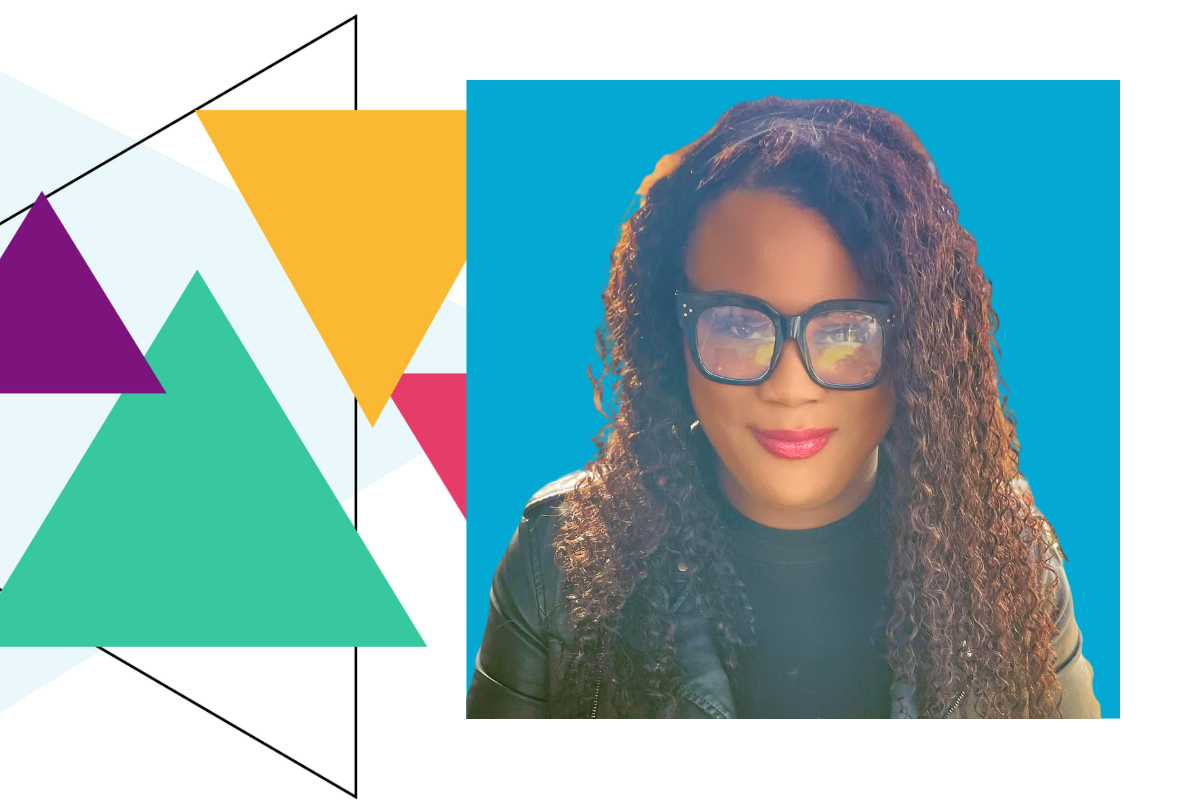“We’re trying to break a really hard glass ceiling, and while some people are there to offer help, you have to have that innate belief in yourself and your mission to survive entrepreneurship.”
Tye-Leigha Hagood (they/them) – or Tye for short – is a Black Trans Queer filmmaker, passionate about the revolutionary act of telling LBGTQ+ stories on a mainstream level.
Tye found their passion for film early in childhood, writing their first screenplay in the 6th grade. Searching for representation of LGBTQ+ and POC in a world with few options growing up, Tye grew to love queer foreign and indie films along with a love for theater and performing arts.
Today, as the President and Chief Content Officer of Maniac Media, Tye and their team are breaking molds as Hollywood’s only Black-and-trans-led production company. And while the road to get there has been filled with highs and lows, the journey to entrepreneurship has given Tye their calling.
Tye, could you explain what the Maniac Group is?
The Maniac Group is the parent company of Maniac Media, a multimedia tech company based in Los Angeles. We are a team of dreamers, storytellers, and technologists, passionate about turning your ideas into stunning visuals and captivating sounds.
My co-founders and I all represent queer, allied, first-generation Americans who believe in putting underrepresented communities in positions of power both behind the camera and in front of it. We assist from conception to completion and operate completely in house. This year, we’re looking forward to launching our animation studio to expand our capabilities within media production.
What gave you the idea to launch Maniac Media?
I started working on Maniac Media while I was still in film school. Since 2012, I’ve worked in producing, public relations, and event production but always knew that directing and producing was my true calling.
When I got to film school, I realized that that world was filled with white, cis, transphobic and homophobic men who didn’t offer spaces for people like me to thrive. Additionally, many of these film school people had jobs lined up through family or friends, and I knew that queer kids don’t always have that option. I’ve owned a business before, and I know that for the doors to open, someone has to come in and blast them down.
In the beginning, it was just myself running the company, but now in 2023, I help manage a team of 20 employees with my co-founders, Juma Ma, Paul Whitcomb, Ruben Ortiz, and Nathan Andurs-Hughes.
What have been some of the challenges you’ve faced since launching?
Access to Capital has always been a big thing to work through, and I know I’m not the only founder who’d say that. But the biggest thing to overcome has been me and my imposter syndrome. It’s hard to imagine that a Black, queer person can interject themself into this world and succeed, and I’ve had so many doubts with Maniac Media.
We’re trying to break a really hard glass ceiling, and while some people are there to offer help, you have to have that innate belief in yourself and your mission to survive entrepreneurship. I’m constantly trying to educate myself further and provide my team with that same opportunity. Education is a pathway to pulling yourself out of that imposter syndrome and finding that you can do what you set out to do.
How did you go about discovering StartOut?
I met with Tony Uceda when we were working together on a project for Pride. After seeing our decks, he recommended that we join the StartOut community to meet other LGBTQ+ founders and utilize their resources.
I was matched with a mentor through StartOut, and she’s amazing. She understands what it’s like for women in business and fundraising and makes me feel like a superstar when I enter these spaces. We’ve only had a few meetings, but I know she’s a connection that will take Maniac Media and me to the next level.
What advice would you give to a new founder just starting?
Know your worth and understand your product. Don’t take anything less than your worth. Educate yourself daily on becoming a better CEO and understand that you don’t have to do it alone.
Also, you need to know the value of fundraising. Don’t feel like you must pour your life savings into your company to grow. I never thought VC was an option for me as a Black and queer transwoman, but firms have started to prioritize folks like me in the past couple of years.
Your company is only as good as its structure. Your policies, your payroll, your culture, etc., all need to be a 10/10. Set yourself up like you will be the next big thing in five years because you know what? You probably will be.
When not working Tye-Leigha is an avid advocate for reproductive justice and trans rights, being one of the lead organizers of the National Mobilization for reproductive Justice. Tye is passionate about joining with other Trans & Queer creatives of color in increasing Trans, POC, and women’s visibility both in front of and behind the camera.
